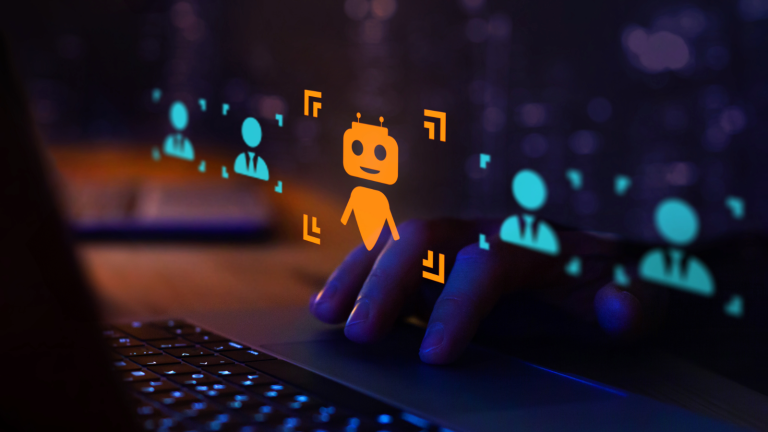Hello, Reader.
“Am I future proof?”
That’s a question we should be asking both of our portfolios and of ourselves.
And it’s all because of AI.
The risks that artificial intelligence imposes requires us to not only future-proof our portfolios – more on that below – but also future-proof our individual career paths, to whatever extent we can.
For example, which jobs are more future proof: Accountant or bartender? Software coder or yoga instructor? Graphic designer or river raft guide?
I am not certain I know the answer, but if I had to place a bet, I’d place it on the bartenders, yoga instructors, and river guides.
This is an aspect of AI that I call the “Revenge of the Bartender” – an honest job that I performed in my youth, and one that will probably last for as long as alcohol is legal.
By contrast, what will become of the high-paying “thinking” jobs – the kind that typically require college degrees? We already know the answer: They are going away… or at least not keeping pace with overall employment trends in the U.S.
The chart below shows the employment growth of four different industry groups during the last three years, relative to the overall employment growth of the U.S. Admittedly, three years is a brief sample from which to draw iron-clad conclusions, but that happens to be the span of time when AI has been infiltrating the world economy.

As you can see, “Leisure and Hospitality” (think: bartender) is the fastest-growing employment category in the chart – up 5% more than overall employment growth. “Construction” is the second strongest category – up 4% more than overall employment growth.
By contrast, the “thinking” industries that typically require a college degree are faring less well. “Information Technology” employment has grown 7% less than overall employment during the last three years, while “Professional Business Services” has grown 4% less.
These trends are not outliers. Employment in most professions that require human interaction, like bartending and construction, is growing at above-average rates, while most “thinking” professions are growing at below-average rates.
As I said, AI deserves part of the blame.
We already know that AI is trimming jobs from many industries, even the very industries that are creating AI. In 2023, Alphabet Inc. (GOOGL) and Microsoft Corp. (MSFT) both laid off more than 10,000 employees. Following those high-profile reductions, U.S. tech companies laid off more than 150,000 employees last year.
AI is taking a bite out of employment in many other industries as well. Two weeks ago, Chevron Corp. (CVX) announced it would be trimming 15% to 20% of its workforce – or roughly 6,000 to 8,000 employees.
Chevron, like most of the other major oil companies, has developed increasingly sophisticated technologies that are incorporating AI to analyze hydrocarbon deposits, guide drilling decisions, and optimize recovery from each wellhead.
At every step of the way, these technologies replace human workers.
That’s why it’s so important to prepare for the shift to come. Because as much destruction as AI has and will continue to cause in the workforce, artificial general intelligence (AGI) could eliminate an unprecedented number of jobs.
AGI refers to AI technology that has reached human-like intelligence. It has yet to be achieved, but I believe the breakthrough is fast approaching. That is why I began my 1,000-Day Countdown to AGI back in September, which you can learn more about from my free, special broadcast.
And when AGI arrives, this time both blue-collar and white-collar workers are set to experience massive job losses and plummeting wages.
So, the need to future-proof your finances starts now. The good news is that there’s still time to take advantage of today’s “pre-AGI” stock market.
I’ve identified several stocks that are set to benefit from AGI as it radically changes the landscape. They can be found in my special reports: My 3 Top AGI Stocks for 1,000% Gains and The AI Dominators.
To learn how to access these reports, click here.
And while you future-proof your portfolio, let’s take a look back at what we covered here at Smart Money last week…
Smart Money Roundup
Elon Musk Touts His New AI Bot – but I’m Looking Elsewhere

Elon Musk and Sam Altman lead “AI Creator” companies that develop the LLMs powering tools like Grok and ChatGPT, driving the AI Revolution forward. While these deserve investment consideration, many overlook another critical AI category that could “future-proof” your portfolio.Let’s explore this under-the-radar opportunity beyond the headline-grabbing AI Creators.
Want to Snag a 30X Gain Like Louis Navellier Did With Nvidia? Here’s What It Takes

In Thursday’s issue, Louis Navellier explores Nvidia’s evolution from its gaming roots to AI dominance. While the company continues to have upside potential, the next phase of AI innovation lies elsewhere.Learn the seven fast-rising ways to play what Nvidia’s CEO is calling a $100 trillion opportunity.
Get in Place Now Before Solar Stocks Catch Fire Once Again

Solar stocks may be emerging from their dark period. Despite the selloff after Donald Trump’s reelection, history shows solar stocks actually performed better during Trump’s first term than under Joe Biden.I’ll explain why Trump’s return might brighten prospects for the solar industry – and how you can invest in this potential resurgence.
Here’s Exactly When to Buy and Sell!

In early 2020, TradeSmith CEO Keith Kaplan faced skepticism from peers after selling his stocks and warning of an incoming bear market. His software’s prediction proved correct, protecting portfolios of those who listened.Keith’s system now signals another market shift approaching – an opportunity to get ahead while others depend on outdated indicators.
Looking Ahead
Beyond the havoc that AI is wreaking, an ultra-rare pattern is forming in the markets right now, one that hasn’t been seen for 30 years.
It’s a strange category of market melt-up that creates hyper-exaggerated gains – and losses – compared to even normal market melt-ups.
That is why this Thursday, February 27, at 8 p.m. Eastern time, during his The Last Melt-Up special briefing, TradeSmith CEO Keith Kaplan will introduce a new tech breakthrough that is designed to mathematically detect and model market melt-ups. He will also reveal what the technology is saying about the market we’re in right now.
In addition, Keith will demonstrate his technology to show you 10 of the best stocks for riding this market event… and 10 “timebomb” stocks to avoid. You can click here to sign up for the event.
I will share more information from Keith later this week. Stay tuned.
Regards,
Eric Fry
Frequently Asked Questions (FAQs)
1. Why are white-collar jobs at risk from AI?
AI is automating tasks in high-paying, degree-requiring jobs faster than in hands-on industries.
2. What types of jobs are more “future-proof” against AI?
Jobs requiring human interaction, like bartenders and construction workers, are less likely to be replaced.
3. What is AGI, and why does it matter?
AGI (artificial general intelligence) would match human-like intelligence and could eliminate millions of jobs.
4. How can investors prepare for AI’s impact?
Investing in AI-dominant stocks and companies that benefit from automation can help future-proof portfolios.
5. What is the next big investment opportunity in AI?
Beyond major AI creators, emerging tech stocks tied to AI adoption could offer major upside potential.

